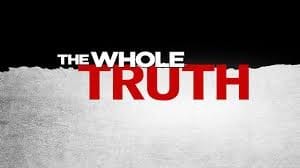Choosing the right defense attorney to represent one’s legal interests is often a topic of conversation, publication, and dissension among the practicing bar and folks with a drum to beat. Ward Davison and James Gill published an article in the Texas Bar Journal this month which was appropos . . . The Perfect Match. The article was well written and informative. However, one weakness in their modus operandi was the “generalist” nature of the advice, especially regarding how to start the attorney/client relationship off on the right foot. I don’t know about civil lawyers, but an experienced criminal defense attorney may take a substantially different approach to learning about the prospect’s criminal charges at the intake interview. (Yes, I’m nitpicking) But following are my thoughts.
Davison and Gill recommended the prospective client “not withhold any information” from the attorney with whom they were interviewing. Further, they advised the prospect to “tell the truth, all the truth, and nothing but the truth” during the initial interview. However, from a tactical point of view I rarely want my client telling me “all the truth” at our first meeting . . . not by a long shot. Occasionally, a Bryan-College Station criminal defense lawyer who knows too much is hamstrung later when advocating the client’s position, especially before a jury. The point being we don’t call our client as a witness unless we know he’s telling the truth. Most often, the client does not know what the “truth” is until they are fully informed of the facts and law bearing upon their guilt or innocence. In the same vein, a defense lawyer who knowingly permits their lying client to testify is treading on unethical ground.
Our approach is to elicit only what we need to quote a fair price for legal services. Clients often want to tell us “everything.” But here is where the experience (and caution) of the defense attorney begins to bear fruit. Before I get the client’s whole story, I want my discovery first. Sometimes a legal defense or key factual issue turns on information in the discovery. Most times we want our client acquainted with the law and the prosecution’s facts before we discuss the “truth.” For example, it may be important my client understands the law of self-defense before telling me everything. The bottom line is we dare not contaminate a potential winning legal or factual issue by having the client commit to a set of facts before knowing how the prosecution can prove guilt.
Make no mistake, this is smart lawyering. Parry any imputation you are unethical, slimy, or deceitful. You are not! To the contrary, helping the client place their best foot forward is part of our responsibility. Helping them understand the law and facts before committing to their story can be the difference between failure and burning the prosecution’s feet on the fire of proof beyond a reasonable doubt. Good luck.
Stephen Gustitis is a criminal defense lawyer in Bryan-College Station. He is Board Certified in Criminal Law by the Texas Board of Legal Specialization. He is also a husband, father, and retired amateur bicycle racer.
Related Posts:
Areas of Practice – Brazos County Expungement
How to Find the One Best Case for Your Client
Points of Action to Help a Loved One Arrested by Police







